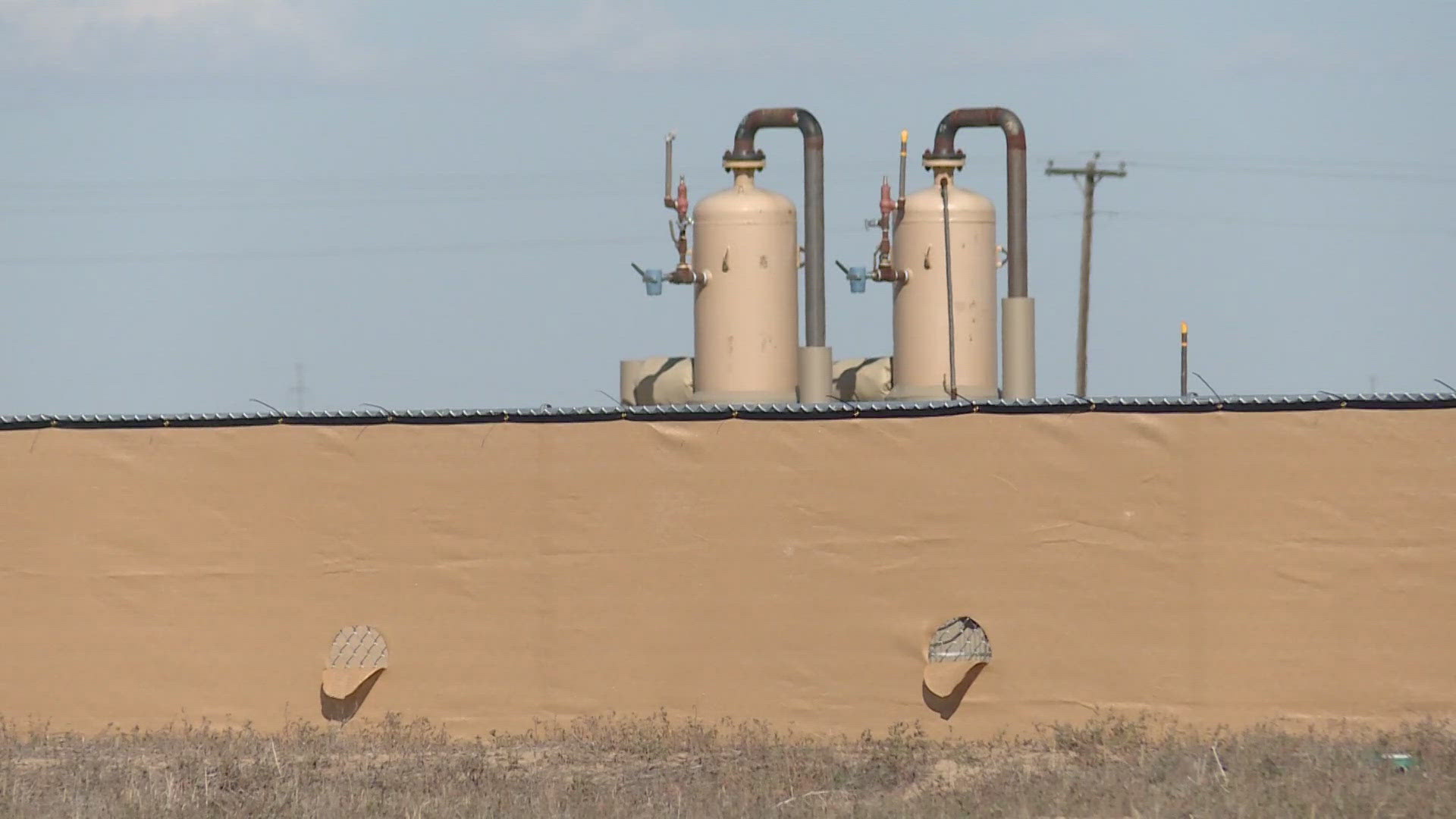WELD COUNTY, Colo. — Transparency and accountability.
The state’s oil and gas commission director announced last week that two environmental consulting firms for oil and gas companies submitted manipulated data for 350 oil and gas sites.
When Colorado’s Energy and Carbon Management Commission (ECMC) Director Julie Murphy told the rest of the commission, she said she wanted to be transparent.
The state has known about the manipulated data since July. The public announcement came Nov. 26.
“I want to be clear that we want to be transparent and that we need to balance that transparency with unnecessarily alarming communication, as well as our need to continue this investigation,” Murphy told the Commission. “This is a very serious matter, and we determined that urgent notifications were not warranted because there was no new or increased risk, based on the falsified data.”
She detailed the basics of what ECMC knows.
“To cut to the chase, there are a couple of individuals that we are aware of who work for environmental consulting firms that have created false laboratory data and reports that the consultants have submitted to the Energy and Carbon Management Commission,” Murphy said. “We do not have information that the operators were aware of the falsification.”
In July, ECMC was notified by both Occidental Petroleum and a third-party environmental consulting firm named Tasman Geosciences that laboratory data was altered.
In August, ECMC was notified by Chevron U.S.A. and Civitas Resources that data collected on behalf of those companies by Eagle Environmental Consulting, also submitted altered data.
For oil and gas sites that are done extracting oil and gas, the state requires certain reporting as they are plugged and reclaimed.
That reporting can include soil, groundwater and surface water sampling.
According to ECMC, 350 oil and gas sites in Weld County are impacted by the manipulated data, dating between 2021 and 2024.
“I recognize that 350 is a large number," Murphy said. "Hard stop and I want to provide some perspective. There are roughly 6,700 remediation sites statewide, of which roughly 4,700 are in Weld County."
“I was made aware of this Monday afternoon,” Jason Maxey, Weld County’s Oil and Gas Energy Department Director told 9NEWS. “July probably wouldn't have been appropriate when the ECMC first found out. I'm sure they had some investigation to do as well, but I sure would have hoped it would have been earlier than just the day before.”
Maxey and Weld County do not require the same type of reporting that the state requires when an oil and gas site closes.
He said the state has not told him where the 350 sites are located within the county.
“It's a little frustrating to not know where these locations are at, know what levels of contaminants there might have been falsified, things like that," Maxey said. "I would have hoped that there would have been a little bit more efficient sharing at this point."
Some of the information that oil and gas operators are required to provide the state commission includes soil, groundwater and surface water contaminant levels.
“The range of falsified data is broad,” Murphy said. “Some of the changes appear to be relatively inconsequential, a date change, for example, that didn't impact regulatory outcomes. Others are much more problematic, i.e., those related to the reduction of benzene or TPH or total petroleum hydrocarbon values.”
According to an environmental engineering professor at the University of Colorado, Beneze can be a serious concern if it is in drinking water or inhaled from bathing water.
“What is their proximity to residents? What is their proximity to sources of groundwater? And so that answer again is a little hard to give because without knowing the locations and what the true impacts were, it's just hard to answer,” Maxey said.
“Our staff is working to ensure that all sites impacted by the falsified data are properly sampled, investigated and remediated,” Murphy said.
The commission is investigating violations of its policies and Murphy said there could be a criminal investigation ongoing as well.
“To date, we have put into place additional safeguards to prevent falsified data from being submitted, and this includes independent samples and also metadata review of information submitted to us,” Murphy said.
She also said that policies may need to change as a result, though the state taking on the sampling seems unlikely given the number of employees that would be needed to do this work for hundreds of sites each year.
“Our regulatory workflow is grounded in the assumption that people abide by the law," Murphy said. "If we determine we can no longer make that assumption, we may need other action and increase resources to change how we do business."
“What strikes me, amongst many other things, but is how much we do rely on the accuracy and validity of the information in the data that is submitted to us,” Commissioner Trisha Oeth said.
“In the long term, if we need to adjust our systems because we do not believe that we can continue to rely on the integrity of data submitted to us externally, that we may need to take a look at that and what that means in terms of resources,” Murphy said.

